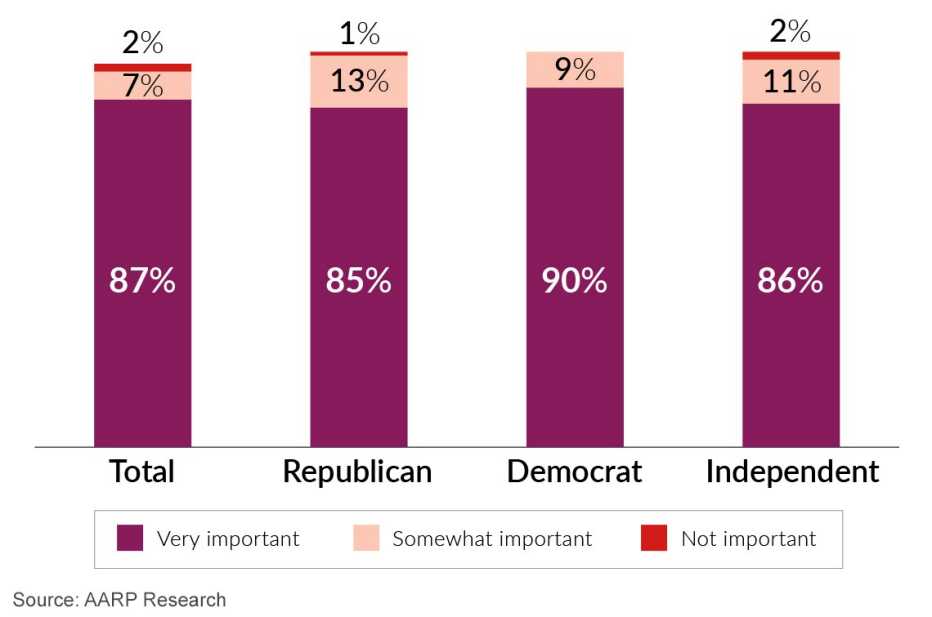AARP Hearing Center
Adults age 50 and older overwhelmingly want Congress to enact legislation providing financial support for family caregivers, and most prefer to get their long-term care in their home, with help from a caregiver, according to a new AARP public opinion survey.
Eight in 10 registered voters who responded to the survey favor providing family caregivers who work with a tax credit of up to $5,000, with the credit based on how much the caregivers spend to aid their loved ones. Support for assistance for family caregivers was bipartisan across all the survey questions. For example, while among all respondents, 84 percent support the tax credit, 78 percent of Republicans, 93 percent of Democrats and 83 percent of independents favor such assistance.
A bipartisan bill has been introduced in the U.S. Senate and House of Representatives that would provide financial assistance to eligible family caregivers. AARP strongly supports the Credit for Caring Act, which could help offset the more than $7,200, on average, that many families spend each year on out-of-pocket expenses. According to AARP research, family caregivers across the country are providing $470 billion in unpaid care each year for tasks such as preparing meals, paying bills and helping loved ones with their medications and other activities.
"American families need more resources and support to care for their loved ones as they age,” says Nancy LeaMond, AARP executive vice president and chief advocacy and engagement officer. “This research shows that for the overwhelming majority of the 50-plus that means access to affordable services that will help their parents, spouses, friends and other relatives stay at home as long as possible. And it means moving forward on commonsense solutions like a tax credit to help eligible family caregivers pay for day-to-day care-related expenses."
Voters want to choose where to get long-term care


The poll also illustrates that a majority of family caregivers provide this assistance while working full- or part-time outside the home. Of the 44 percent of respondents who said they have been a family caregiver, 69 percent said they continue to work.
An overwhelming majority of older voters (87 percent) also want people to be able to choose where they get their long-term care, with 84 percent saying it's very important for their loved ones to be able to stay at home for as long as possible.
The telephone survey of 1,400 registered voters age 50 and older was conducted between Aug. 2 and 12 and has a margin of error of plus or minus 2.6 percent.
Dena Bunis covers Medicare, health care, health policy and Congress. She also writes the “Medicare Made Easy” column for the AARP Bulletin. An award-winning journalist, Bunis spent decades working for metropolitan daily newspapers, including as Washington bureau chief for the Orange County Register and as a health policy and workplace writer for Newsday.
Learn More About Family Caregiving
- More support for older caregivers could boost U.S. economy
- How years of caregiving led to bankruptcy
- A financial workbook for family caregivers



































































